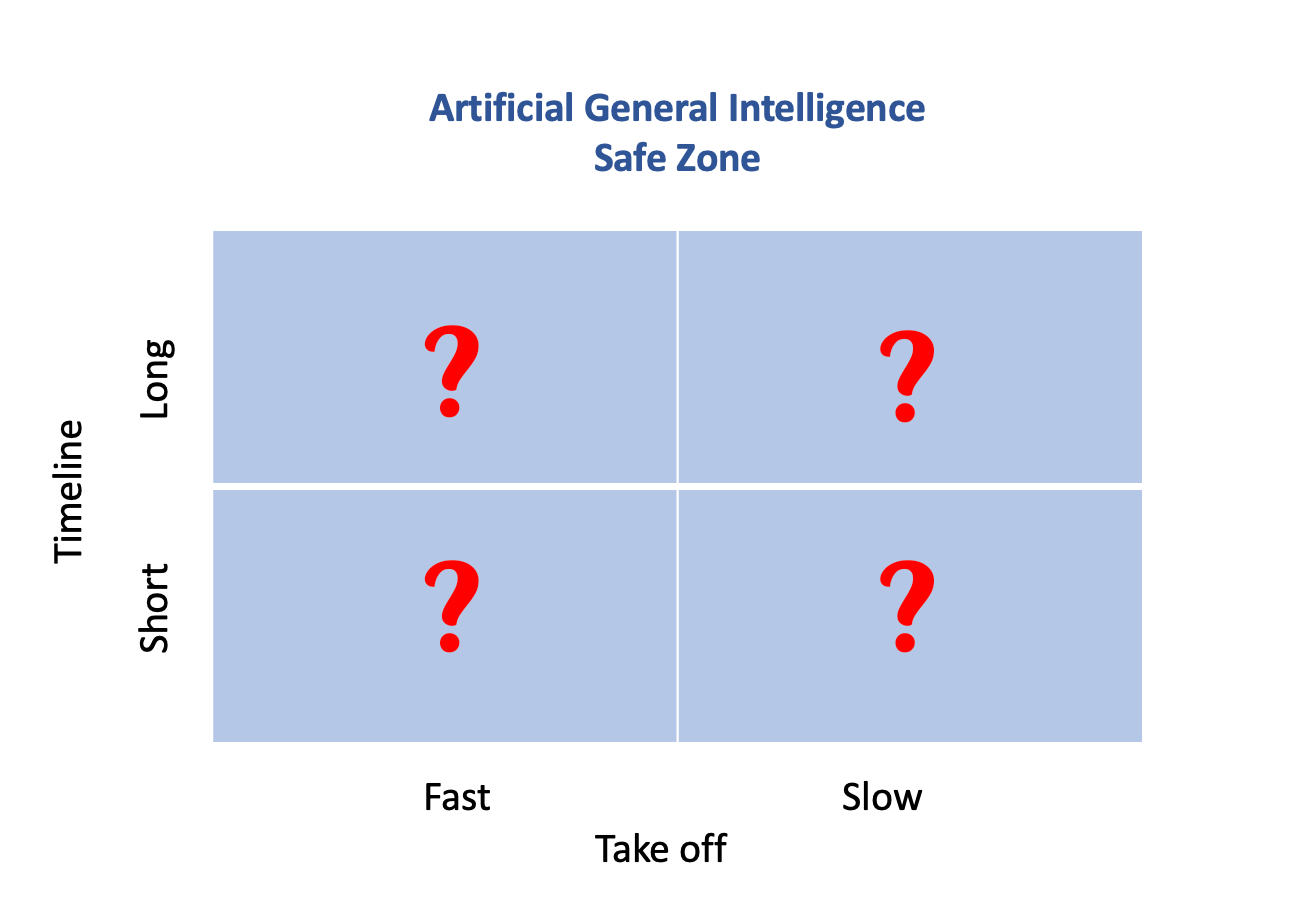I like running and I would characterize my running as slow but sure. When I run, I listen to podcasts and time them to the length of the run. Recently I was not able to find a good match, I really wanted to listen to a long podcast and only had the time and the stamina for a short run. I got to a point in which a thought-provoking question was asked:
What is safest for AI: a world in which the timeline to achieve Artificial General Intelligence (AGI) is long or short, and whether the take up of this technology is fast or slow? (*)
There are multiple embedded debates in this question, which is what makes this topic a fascinating one. First, there is the philosophical discussion about what AGI is, then the ethical discussions about if and how to get there, and technical debates about how fast one could. Rather than focusing on whether we will ever get to a level of AI that will mimic human intelligence and even our consciousness, I posit that we are better off asking the same question in the context of the AI that is already with us today. The speed at which generative AI became part of the zeitgeist was astonishing. Its pervasiveness increases every day.
For more than I think that the safe zone would be like my running (long and slow), we are already in a cycle that feels short and fast. A very short timeline to a level of artificial intelligence that will feel human, and a blazing fast pace of adoption.
This is why we need to focus on the ethical elements of how we are going to use the technology.
Where do you think we are? I have asked our co-pilots Bard and ChatGPT. They continue to impress me with their answers.
(*) Thank you, Sam Altman and Lex Fridman, for framing the question (could not resist the pun)
This article represents my personal views. It does not represent the views of any companies I have been or am presently affiliated with.








Since ChatGPT specifically mentions AGI's sped adaptation could help with climate-related issues, what would that footprint look like, other than suggestions on resource management and energy efficiency which activists and industry people already do?